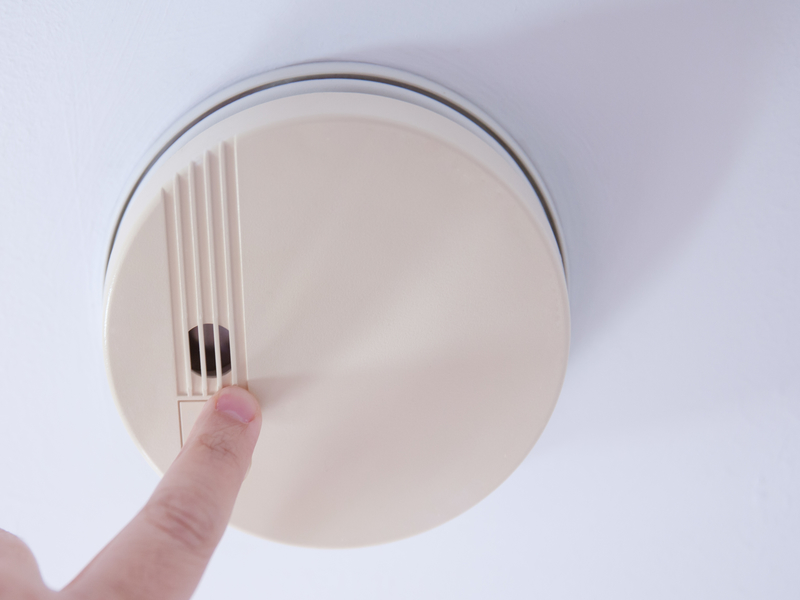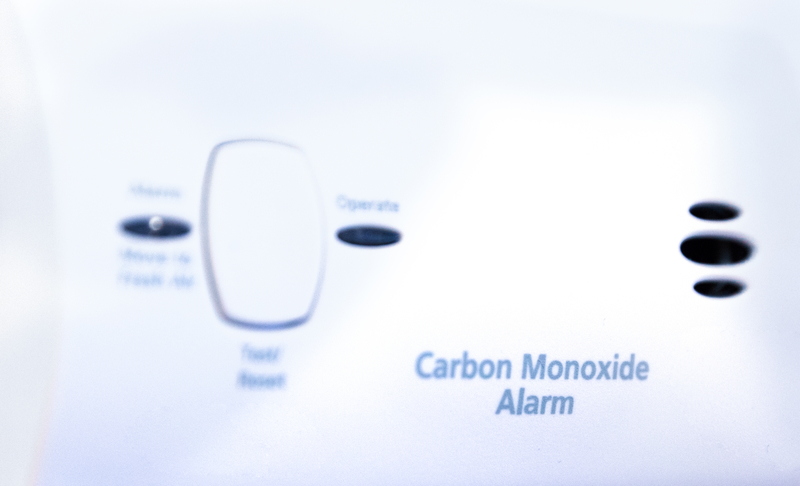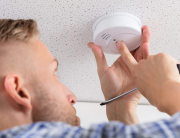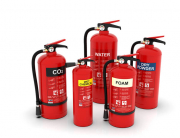The Importance of Carbon Monoxide & Fire Alarms
We all know how dangerous fire can be. The results of fire and smoke damage are always devastating; at times so much that you may lose everything you ever loved and worked hard for in just a matter of minutes. But it does not have to be that way. You can make use of fire detectors and alarms to avoid the awful effects of fire damage.
When fire damage is mentioned, most people think of smoke and the fire that consumes your property. However, there is an element whose effects are more damaging and deadlier in the case of a fire – carbon monoxide. For this reason, it’s highly advisable that you use fire alarms alongside carbon monoxide alarms.
What is Carbon Monoxide?
Carbon monoxide is a gas, whose main components are oxygen and carbon. The gas comes from carbon fuel that has not completely burned such as wood, coal, natural gas, gasoline, and others. When produced in open areas, carbon monoxide is not dangerous. It becomes hazardous in a confined space such as a garage, basement, tent, or a kitchen.
The main reason why carbon monoxide is considered dangerous is that it’s hard to identify without detectors. In addition, once it gets into your body through the lungs, it binds with the red blood cells and deprives your body of oxygen. Not great, right? Well, with a simple carbon monoxide detector you can help to prevent this.
How to Detect Carbon Monoxide?
Humans cannot detect carbon monoxide either by vision or smell. The only effective way to detect this deadly gas is by using detectors. They pretty much work just like smoke detectors, by sounding an alarm when carbon monoxide is detected.
However, smoke alarms cannot be used to detect carbon monoxide. For this reason, you have to install smoke alarms alongside carbon monoxide detectors. Doing so ensures maximum safety in case of a fire or carbon monoxide leak in a commercial or residential building.
Preventing Carbon Monoxide Poisoning
Carbon monoxide is a huge threat to one’s health and wellbeing. Fortunately, however, it is quite easy to avoid carbon monoxide poisoning. In addition to installing detectors in your home, the following tips should also make it easier to reduce the probability of carbon monoxide poisoning.
1. Never Run Your Car in the Garage
There are times when you want to run your car in the garage for various reasons, such as warming it during winter. However, this is not advisable because cars produce carbon monoxide which can build up quickly whether in a closed or open garage. You should always pull out of the garage before running your car’s engine.
2. Cook Safely When Camping
Your safety matters more than anything else, especially in the wilderness where emergency services are not readily available. As such, you should avoid using a camping stove, charcoal grill, or hibachi inside a tent, camper, or any other closed places.
3. Ensure Proper Ventilation
Whenever you run any equipment that uses gas-powered engines, such as a generator or pressure washer, you should ensure that there is adequate ventilation. Using such engines in rooms that are not properly ventilated can result in carbon monoxide poisoning.
4. Avoid Using Gas Energy to Heat Your Home
Gas stoves produce carbon monoxide, increasing the chances of poisoning. You should seek other alternative healing methods to avoid using gas. If you must use gas-powered heaters, always ensure that they’re regularly maintained by professionals. That way, any imminent leaks can be avoided early enough.
5. Use Carbon Monoxide Detectors
The best way to prevent carbon monoxide poisoning is by installing detectors, which are not only affordable but also easy to install. It’s recommended that you add fire and carbon monoxide alarms on every level of your home, for maximum safety.
Installing a carbon monoxide detector alongside a smoke detector is one of the best ways to ensure fire safety in residential as well as commercial buildings. With these detectors, you get alerted when smoke or carbon monoxide is present in the building. Remember that carbon monoxide is not only hard to detect but is also one of the deadliest gases that can ever exist in your home. If you have any questions or queries please get in touch today on 01604 760600, our team at Northants Fire are on hand ready to help you ensure your home or business is as safe as possible.







